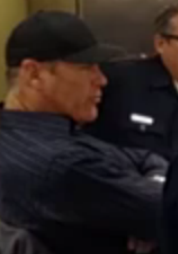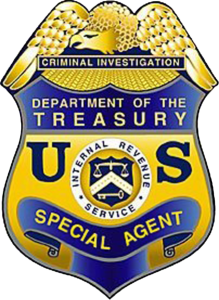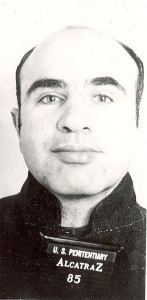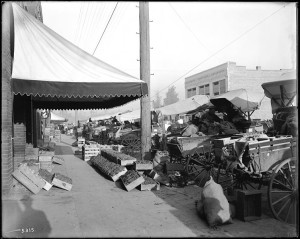
Good evening. My name is John Tronson. I’m a member of the Hollywood Entertainment District, which is a property-owner based business improvement district in Hollywood.
All these people start off by saying something true. It’s meant to lull your suspicions. Don’t let it.

The way a property-based BID works is this: If the majority of the property owners in a district agree, the city adds an extra assessment to their property tax, keeps some part of the money raised for administrative overhead, and distributes the rest back to the BID to spend on specific kinds of services in the district. There are two important points to remember. First, a BID can be established over the objection of individual property owners. Only a majority need approve. Second, once a BID is established, the assessment is no longer voluntary. It is compulsory. Non-payment is punishable by the full range of state action2 up to and including violent confiscation of property. In other words, this assessment, once paid, is a tax. After all, income tax might be considered voluntary in this same sense. The Sixteenth Amendment to the Constitution was put in place by elected representatives, so in a way, the people to be taxed consented to the taxation. But now that it’s in place, income tax is no longer voluntary, just as BID assessments are no longer voluntary. This is consistent with the standard definition:

Now, everyone who pays taxes has, at one point or another, thought of that money as still their own. But really, it’s not. Try telling a cop not to give you a ticket because you pay their salary with your “own money.” Try telling a professor at UCLA they have to give your kid an A+ because it’s your “own money” that supports them. It’s a losing argument. Taxes, once paid, belong to the public, not to the people who paid them. BID assessments are taxes. BID assessments are public money. Now, as to John’s statement about what they do with that public money, it’s true as far as it goes. That’s not all they spend the money on, but they do spend it on that. We won’t argue. Onward!

This is a plausible candidate for the reason why they do this, but also probably not the actual reason, which is surely far more neurotic than this. To dispute it, though, we’d have to delve deeply into speculative psychoanalysis. We know enough to stay out of the gutter if we ain’t wearing boots, so we’ll save that for another day. We will note in passing that the city isn’t generally responsible for graffiti removal anyway, since it mostly affects private property. Just sayin’, John…
My main concern about this ordinance is that if anybody comes up here and tells you it’s gonna be a self-funding ordinance, I believe that they’re, uh, you’re being misinformed, and any money that’s gonna be spent to hire the inspectors that’re gonna be required to, to provide any level of reasonable enforcement for this ordinance, um, will be taking dollars away from a city that can’t afford to provide basic services as it is.
OK, let’s give him the claim that the ordinance won’t be self-funding. Let’s, for the sake of argument, just stipulate to that. Now, there are currently street vendors in Los Angeles. There will continue to be street vendors in Los Angeles no matter what happens with the law. Thus, if street vending is legalized, it’s not possible to spend more on enforcement than is already being spent, what with cops arresting vendors, BID Patrol officers arresting vendors and turning them over to cops for processing and so on. Money is being spent right now on enforcement. If street vending is legalized and some kind of permit fees are charged and some kind of taxes are collected that revenue will potentially offset some of the present expenditure on enforcement, but even if it doesn’t at all, the amount of money spent will be less than or equal to the amount spent now.

Finally, we’d just like to note that John’s argument conflates what the Hollywood Entertainment District BID spends its money on, trees, graffiti removal, rent-a-cops, with actual basic services, like water, power, cops, fire fighters, and so on. Tree-trimming is important, sure, but it takes a certain kind of insular rich whiteness to think that it’s basic. It’s not.
So I’m in favor of keeping the status quo of certain communities who would like to expand street vending, there is a mechanism to do so, and those that don’t want to, shouldn’t have to.
Now, finally, the real truth comes out. You see, every argument John used against a city-wide legalization of street vending also works, insofar as any of them work at all, against localized street vending in districts, which is what the law he’s referring to provides for. If it won’t work city-wide because of revenue neutrality, it won’t work in one district because of revenue neutrality. Contrapositively, if it will work in single districts it will work city-wide if by “work” we mean “work with respect to revenue.” Really what’s happening here, the only way it makes any sense, is if John’s just toeing the party line about not wanting sidewalk vendors in Hollywood but doesn’t want to repeat the same tired arguments about civil sidewalks or whatever. In other words, he’s just making shit up like all his HPOA compatriots. Sheesh!
John Tronson:
Transcription: Good evening. My name is John Tronson. I’m a member of the Hollywood Entertainment District, which is a property-owner based business improvement district in Hollywood. We spend three and a half million dollars a year of our own money to clean the streets of Hollywood, to trim the trees, to provide additional public safety and paint out graffiti. The reason why we do this is because the city simply can’t afford to provide those services at an adequate level. My main concern about this ordinance is that if anybody comes up here and tells you it’s gonna be a self-funding ordinance, I believe that they’re, uh, you’re being misinformed, and any money that’s gonna be spent to hire the inspectors that’re gonna be required to, to provide any level of reasonable enforcement for this ordinance, um, will be taking dollars away from a city that can’t afford to provide basic services as it is. So I’m in favor of keeping the status quo of certain communities who would like to expand street vending, there is a mechanism to do so, and those that don’t want to, shouldn’t have to. Thank you for your time.
- Zimmerman, Robert. It’s Alright, Ma (I’m Only Bleeding). New York, 1964.
- Here we use the word “state” in its generic sense.
- Oxford English Dictionary.
Image of John Tronson is ©2015 MichaelKohlhaas.org. Image of IRS badge is not subject to copyright since it’s the work of U.S. government agents and you can get your own copy at Wikimedia. Same deal with Al Capone mugshot. Get yours here. Image of Arts District graffiti is available from Wikimedia and has been released by its creator, Ppelleti, under the CC BY-SA 3.0. Image of LA food wagons is in the public domain because it’s so old and we got it from Wikimedia, as by now you probably coulda guessed…
